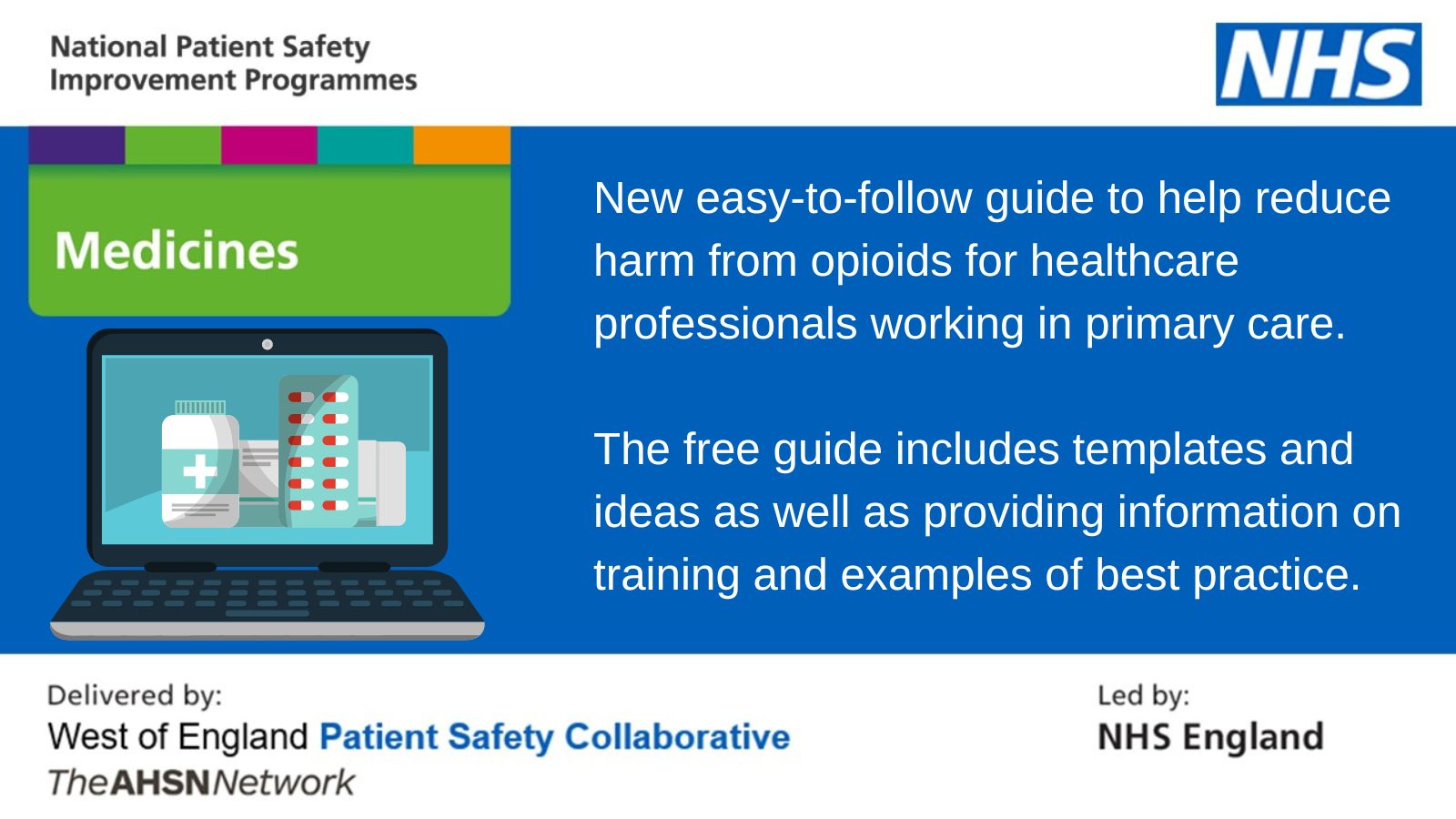
The West of England AHSN have launched a new easy to follow guide for healthcare professionals working in primary care. The guide will support clinicians to identify patients at risk from opioid prescribing, includes templates and ideas as well as providing information on training and examples of best practice initiatives.
The free guide has been produced as part of our work to deliver the NHS England-commissioned Medicines Safety Improvement Programme (known as MedSIP). MedSIP is focused on improving the care of people living with non-cancer chronic pain by reducing the prescribing of high-risk opioids. The guide also provides a framework for activity to support the Quality and Outcomes Framework (QOF) and Investment and Impact Fund incentives. In 2022/2023, there is a drive (as part of QOF) to use non-pharmacological alternatives, identifying review patients taking high dose medicines and to reduce the use of dependence forming medicines.
There is no evidence for the efficacy of high dose opioids (>120mg/day morphine equivalent) on long term pain. The Faculty of Pain Medicine has advised that increasing opioid load above this dose is unlikely to yield further benefits but exposes the patient to increased harm. Despite this, Public Health England’s review (2019) shows that in 2017 to 2018, 540,000 adults in England were prescribed opioid pain medicines for 3 years or more.
The effects of COVID-19 are anticipated to have exacerbated the use of opioids for chronic pain, which is linked to both deprivation and the prevalence of mental health conditions such as anxiety.
Chris Learoyd, Senior Project Manager at the AHSN, said:
“Reducing harm from opioids is vital, and we’ve had really positive feedback on this work so far. It’s important healthcare professionals working in primary care have access to the latest information and resources to lead effective conversations with patients about pain management, and this guide will support this core ambition of the Medicines Safety Improvement Programme”.
Download our harm reduction guide.
Find out more and access other resources to support delivery of MedSIP.
Posted on December 2, 2022


